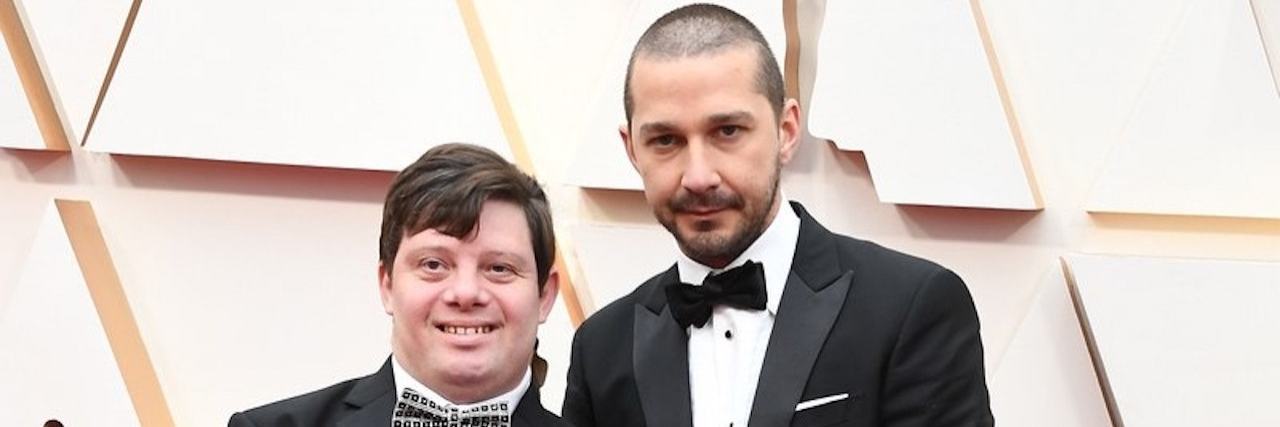How Superstars With Disabilities Make the World Better for All
Representation matters. This year, Zach Gottsagen presented at the Oscars with Shia LaBeouf. This is a milestone! For those who don’t know, Zach stars in the movie “Peanut Butter Falcon.” Zach happens to have Down syndrome. Zach has worked hard to get to this moment, fighting to be included in his high school for the performing arts when he was younger. His presence tonight, as a presenter, will hopefully be a beacon of light for the industry to notice all performers with disabilities. I know it is a source of pride for so many families and youth. My family is one of those. My daughter, who is 19 and also has Down syndrome, is so proud of Zach.
Representation matters. As a parent on this journey for two decades now, progress is sweet. I savor it because it comes very slowly.
Note these superstars below, who all have Down syndrome or an intellectual disability.
In 2017 Frank Stephens gave a powerful speech to a Senate committee that went viral. His speech was about how his life is worth living. His motivational speeches are changing hearts and minds to this day, all over the world.
In 2010 Tim Harris opened Tim’s Place, a restaurant that serves breakfast lunch, and hugs. He became a viral sensation as the first person with Down syndrome to own his own restaurant. He is now a motivational speaker breaking down stereotypes all over the world. Tim’s example helped encourage the numerous young people with disabilities who own businesses today.
Mikayla Holmgren, a fashion model and dancer, gained national recognition when she competed in the Miss Minnesota pageant, not a separate pageant. When my daughter saw her pictures, she said, “She is beautiful. Just like me.”
Kayla McKeon is a registered lobbyist in Washington, D.C. Kayla is a sought after keynote speaker, has a podcast called Kayla’s Korner and attends community college. She tirelessly advocates for all and is a role model for many, including my daughter.
Sean McElwee starred on the Emmy-winning TV show “Born This Way.” He owns a t-shirt business named Seanese, is a keynote speaker and has a YouTube show. He often speaks about making dreams come true and is an example of success after a difficult school journey.
Madison Essig attends George Mason University. She has advocated for inclusion for all students in student government and sorority/fraternity life. Madison started out in the Mason for Life program but has since switched to the standard four-year program to earn her bachelor’s degree.
Micah Mialka-Feldman has been fighting for equal rights since he was in elementary school and asked his parents if he could go in the same door at school as his peers. He is now a graduate of Syracuse University’s Inclusive U, a teaching assistant at the university, a popular speaker and has a book coming out this summer. Micah has an intellectual disability.
I could go on and on listing national success stories, including many with autism and other disabilities. I have been watching these people closely for almost 20 years — to learn from them, to use their powerful examples as fuel to hurdle the many barriers students with significant disabilities can face. The fact that there are so many success stories is wonderful news.
Does this mean my daughter is going to be famous? No. She does not care about being a superstar. But I sadly see some parents missing the whole point. They are not seeing these excellent role models for who they are — ground- and barrier-breakers. Humans who are making the world a kinder, gentler and more inclusive place. They are not seeing that a more accepting world means more possibilities for their child.
So to all the superstars out there in the media, taking the criticism that goes along with fame, I say thank you. Thank you from a parent’s perspective. Thank you from my 19-year-old daughter. And thank you from the community around us that is soaking in all this great news, and inching towards a better world one day at a time.

